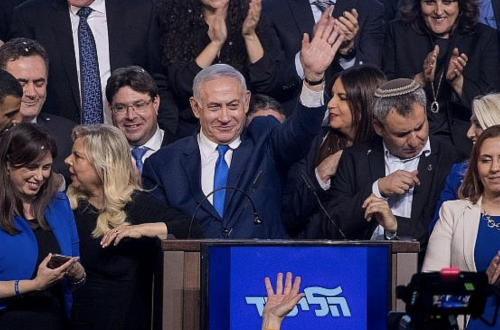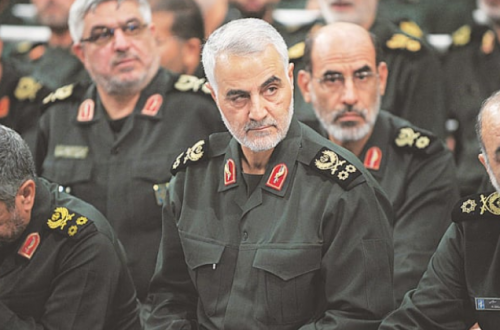This is a guest post by Evan Helmuth
Reaction to Donald Trump’s uncharacteristically scripted and—at least tonally—normal speech on Tuesday was generally gushing, with most commentators concluding that because the President of the United States managed to not show any overt signs of derangement and to stick to his teleprompter over an hour-long speech, he had delivered an oratorical epic of historical proportions. The most notable exception to this general mood of adulation came in the form of this Glenn Greenwald piece, in which he takes issue with Trump’s shameless instrumentalization of the recently widowed wife of a Navy SEAL, William “Ryan” Owens, who was killed during a raid Trump ordered in Yemen in January. This stunt was elaborate, even including Trump quoting the Bible and pretending to be some sort of Christian, as all American politicians are expected to do. This would have obviously been hilarious, if it weren’t so distasteful.
In the piece, Greenwald points out the vast disparity between Americans’ veneration of dead and wounded American servicemen and women and the relative obscurity of civilians killed by the U.S. military, of whom Greenwald implies there are “hundreds of thousands (at least)”. He goes on to argue that Trump’s nearly four-minute scripted recognition of Owens and the public spectacle Trump made of Owens’ widow, Caryyn’s grief is a familiar tool of “U.S. war propaganda” and one far from unique to Trump. He cites examples from President Obama’s State of the Union address in 2014, in which he spent several minutes honoring a wounded veteran and a similar example from President Bush’s 2007 State of the Union.
As denizens of Harry’s Place are no doubt well aware, Greenwald’s claims intersect with objective reality only slightly more often than Trump’s do and while, unlike Trump, he does at least have a moral compass, it is deeply, sadly misguided. Consequently, he is almost always wrong about almost everything. In this case, his conflation of Trump’s display on Tuesday with efforts by past presidents to recognize wounded veterans is utterly facile. Trump has taken (I think undeserved) political heat for supposedly ordering the operation in Yemen in which Owens was killed without sufficient planning or intelligence. His lengthy focus on the grieving Mrs. Owens was a transparent attempt to drown this negative press and the—seemingly true—allegation that the raid was largely a failure in her tears and to perfume himself, as Commander in Chief, with a whiff of Chief Owens’ heroism. To me, and to lots of actual combat veterans who watched it (including, if the looks on their faces are any guide, the military brass in attendance) it was an extraordinarily unseemly maneuver to exploit the grief of a devastated widow for the pettiest of political purposes: to protect Trump’s delicate and comically oversized ego from any and all criticism.
In addition to asserting that Trump’s invocation of Mrs. Owens’ grief wasn’t unique though, Greenwald also claimed that civilian deaths at the hands of the U.S. are, “always far greater” than the number of American military personnel killed in conflict. There is a grain of truth to this historically. That statement would certainly be accurate if applied to Vietnam, or to The Second World War. But the contemporary U.S. military goes to enormous lengths to avoid inflicting civilian casualties, both for strategic and for legal and ethical reasons, and they’re usually pretty successful in doing so. The idea that the U.S. military has killed “hundreds of thousands” of civilians over the last 15 years, as Greenwald claims is absurd and depends on attributing every civilian casualty that occurs in a U.S. war to the U.S. and not attributing any to the suicide bombings of crowded markets, and mosques, and traffic jams that were and are salient features of the wars America has been involved in since 2001. It’s an insult to both the intelligence of Greenwald’s readers and to the professionalism of the U.S. military to make such a claim and no thinking person who has considered the evidence for even a moment could believe it.
There are, of course, notable exceptions where people either make tragic mistakes (as in the case of the MSF hospital in Kunduz) or, more rarely, where people or small units betray their obligations and engage in war crimes (as with the case in Mahmudiyah in 2006). But both types of instances are investigated thoroughly and in the case of the latter, people are prosecuted and go to prison. In both cases, there’s also very often publicity, if arguably not enough, because we have a free press that’s better at doing its job than it gets credit for.
In this particular case, some reports indicate that there were women firing on the SEAL team. It’s quite possible that isn’t true. It’s possible the women and children were shot by accident, or that the SEALs weren’t very discriminating in who they shot and subsequently made up the story about female combatants to partially cover their tracks. They would certainly have a pretty clear incentive to do so and there ought to be an investigation into the civilian deaths that occurred. I don’t know whether the women who were killed were combatants or not, and neither does Greenwald, though he’s not exactly hesitant to assume the worst about the U.S. military. Given the rather obvious danger involved in a western journalist trying to go find out and the equally obvious propaganda motive of their own that AQAP’s operatives would have in lying about it if a journalist did make it to them to ask what happened, it seems unlikely we ever will know for sure.
As a useful point of comparison though, the Al Qaeda folks who were the intended target of that raid try pretty regularly to kill civilians as a matter of policy and ideology and on as large a scale as they possibly can. I would submit that, while holding one’s own political leaders and military to account is essential, it’s also important to recognize an enemy when we see one and to not delude ourselves about the existence of enemies who really do mean us harm and who were our enemies prior to 2001 and would remain our enemies even if we cut off foreign aid to Israel tomorrow and pulled all of America’s troops out of the region.


